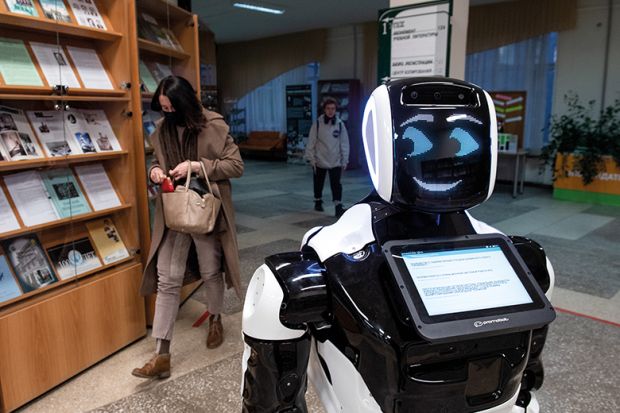How decolonised is my curriculum? There’s an app for that

Source: Getty
Researchers have created the first digital tool that can tell academics how decolonised their curricula are.
Imperial College London’s computer program analyses the geographic distribution of journal authors on reading lists, as well as the socio-economic status of their country.
Its creators say that scrutiny of reading lists is an important tool in understanding who is and is not excluded from academic knowledge and how this perpetuates inequality.
Previous analyses of Western reading lists have found heavy bias towards the Global North. A 2019 study at another UK institution found that core texts were “dominated by white, male, Eurocentric authors”.
However, such studies are usually time-consuming exercises, involving manually researching titles’ authors or place of publication.
In contrast, the Imperial tool converts reading lists into machine-readable code, and then cross-references bibliographic and author data with Web of Science and World Bank records.
It calculates a “citation source index” between 0.0049 and 1 for each article, and an overall mean score for the course, with a higher CSI indicating a higher prevalence of authors from the Global North.
So far the tool has been used on Imperial’s master’s in public health, where it found “a skew toward research produced by researchers affiliated with institutions predominantly in high-income countries”, according to a preprint published on SocArXiv. Last year’s reading list had a CSI of 0.8803.
Mark Skopec, a research assistant in Imperial’s department of primary care and public health, said that they were “not trying to say there is an ideal CSI or that if your course has a CSI of 0.96, then it is a bad course, but to show people where the information that they use comes from, as a way to start a conversation about this”.
“[We want people] to think: is this [score] representative of the information that is out there? And could this be changed in any way?” he said.
Currently, the program can only analyse journal articles, but the team is looking to expand it to cover books, too. Imperial plans to make it available to other courses soon.
Kehinde Andrews, professor of black studies at Birmingham City University, said that while the tool was interesting, he would caution against looking at decolonisation as simply a “Global North/South divide”.
“Just adding up numbers is far too simplistic, as it doesn’t include how those reading lists are used. There are also the much broader issues of pedagogy, staffing etc that may be more important when thinking about the university,” he said.
The Imperial team say that they “do not intend quantitative data to supplant the primacy of experience and theory in decolonisation, rather to support it”.
“The program allows us to analyse course reading lists quickly and efficiently, but the data alone doesn’t mean anything until it is interpreted by the course leaders, the students or experts in the field,” said Robyn Price, Imperial’s bibliometrics and indicators manager.



